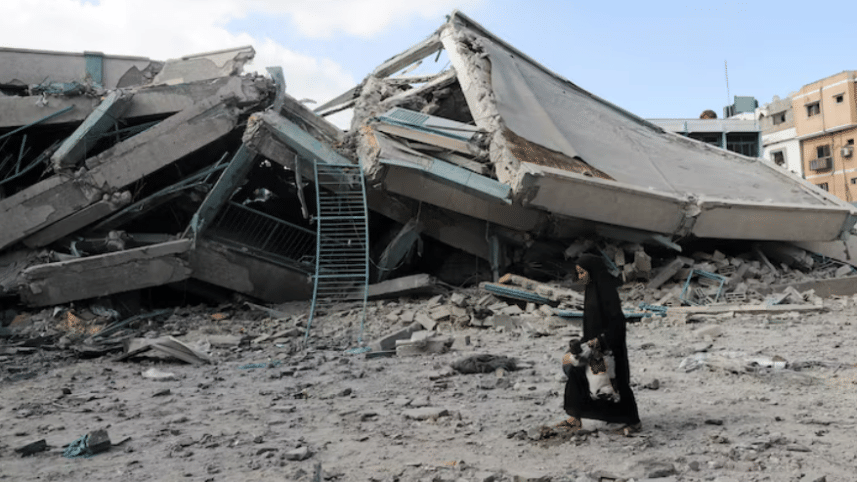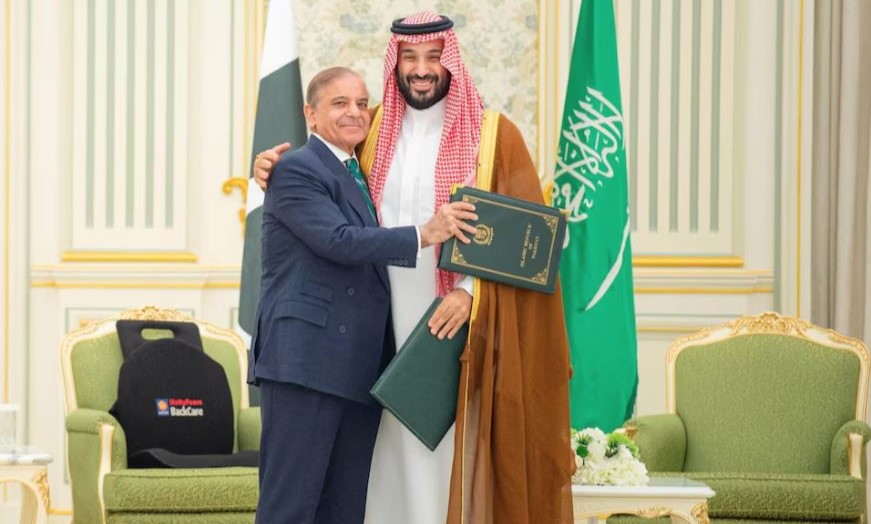The Global South must demand more than symbolic recognition for Palestine

The dust rising from the rubble of Gaza has begun to settle in the Western power corridors. In a move that sent diplomatic shockwaves, the UK, Canada and Australia—core members of the US-led alliance and traditional shields for Israel—announced their recognition of Palestinian statehood. Portugal soon followed. The headlines bloomed with a sense of historic shift, a long-overdue correction. But from the perspective of the Global South, particularly for nations like Bangladesh that have long stood in solidarity with Palestine, this moment demands a clear-eyed and critical interrogation.
For decades, the Palestinian struggle was relegated to the margins of Western diplomatic seriousness, often framed as a complex conflict rather than a straightforward case of colonial displacement and occupation. Nations in the Global South, many of whom won their own independence from colonial masters, saw through this obfuscation. They recognised Palestine decades ago not as a bargaining chip but as an inalienable right. This latest wave of recognition from powerful Western states is, in one sense, a stunning admission that the Global South was right all along. It is a testament to the unyielding power of global public opinion, forged in the horror of over 60,000 deaths in Gaza (since October 7, 2023) and the relentless witnessing of a genocide live-streamed in real time.
These recognitions are a significant diplomatic defeat for Israel and its chief patron, the US. They formally legitimise the Palestinian right to self-determination on the pre-1967 borders and make it impossible to dismiss their aspirations as illegitimate. They are, undeniably, a symbolic victory wrested from the jaws of unimaginable suffering.
Yet, symbolism is the currency of the powerful when they wish to appear moral without incurring any cost. We must see this move for what it is not. It has not stopped the bombs. It has not lifted the siege of Gaza. It does not dismantle a single illegal settlement in the West Bank. The Israeli government has already dismissed these recognitions as irrelevant, and they are correct in one chilling aspect: on the ground, nothing changes—the military occupation, the apartheid system, the relentless expansion of settlements.
This is where the gesture curdles into hypocrisy. The UK, even as it moved to recognise Palestine, continues to arm Israel. It has supplied the very weapons that have enabled the destruction we see in Gaza. This recognition, then, feels less like a principled stand and more like a cheap, cost-free act of reputation laundering. It allows these nations to don the cloak of morality while their hands remain stained. It is the equivalent of offering a bandage to a victim while continuing to supply the assailant with the knife.
As Palestinian scholar Joseph Massad has long argued, Western policy often seeks to manage the conflict rather than resolve it, perpetuating a cycle of violence that serves certain geopolitical interests. This recognition, without concrete action, fits neatly into that cynical framework.
The Global South, therefore, must not be placated. Our response should not be gratitude, but a strategic and unified demand for consequential action. We must accept their symbolic victory and immediately raise the stakes.
First, we must expose the double standard with relentless clarity. When Russia launched the Special Military Operation (SMO) in Ukraine, the West unleashed the most severe sanctions in modern history within days. Yet, in the face of a confirmed genocide, as ruled by the International Court of Justice (ICJ), the responses to Israel have been tepid concern and continued arms sales. This double standard in the application of international law is glaring, and the Global South must be the primary accuser. We must weaponise this contradiction in every international forum, from the UN to regional blocs.
Second, we must lead where the West fails. Our role must be to pursue tangible justice, not symbolic gestures. This means i) vigorously supporting the cases at the ICJ and the International Criminal Court (ICC), providing political and legal backing to ensure these proceedings are not sabotaged by geopolitical pressure; ii) strengthening and expanding the Boycott, Divestment and Sanctions (BDS) movement, using our collective economic weight to impose a cost for this oppression; and iii) demanding an immediate and total arms embargo on Israel from all nations and pushing for sanctions against officials responsible for war crimes.
Third, we must unite and amplify our voice. A fragmented response is easy to ignore. Through the African Union, the Arab League, and the Organisation of Islamic Cooperation, we must coordinate a singular, powerful diplomatic front. A bloc representing billions of people cannot be dismissed.
The path forward must also involve a radical shift in the discourse itself. We must begin to criminalise the denial of this genocide, much as the denial of the Holocaust is rightly condemned in many parts of the world. As Iranian-American scholar Hamid Dabashi has proposed, the denial of a genocide while it is still going on is not just an opinion, it is a form of complicity. It is a deliberate act of obscuring reality to allow the killing to continue. Making such denial a punishable offence would be a profound step in breaking the cycle of impunity and the disinformation that fuels it.
Israeli historian Ilan Pappé, who has meticulously documented the ethnic cleansing of 1948, refers to Israel's actions as an "incremental genocide." The world can no longer plead ignorance. The recognitions from London, Ottawa and Canberra are a belated admission of this reality. But admissions are not absolution.
The true importance of this moment will be determined by what happens next. The Global South must seize this diplomatic opening not as an endpoint, but as a lever. We must use it to demand that words are finally transformed into action—that the bombs are stopped, the occupation is ended, and justice is delivered. The Palestinian people have waited more than seven decades for their freedom. They deserve more than a symbol.
Zakir Kibria is a Bangladeshi writer, policy analyst and entrepreneur based in Kathmandu, Nepal. He can be reached at zk@krishikaaj.com.
Views expressed in this article are the author's own.
Follow The Daily Star Opinion on Facebook for the latest opinions, commentaries and analyses by experts and professionals. To contribute your article or letter to The Daily Star Opinion, see our guidelines for submission.




 For all latest news, follow The Daily Star's Google News channel.
For all latest news, follow The Daily Star's Google News channel. 

Comments